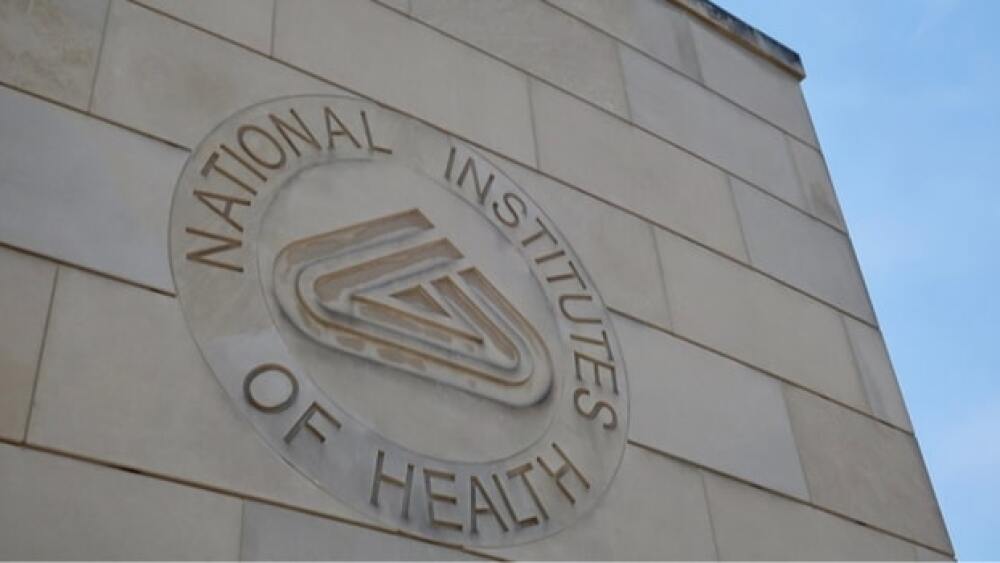The U.S. National Institutes of Health (NIH) is launching a clinical trial of a combination of Gilead Sciences’ antiviral drug remdesivir (Vitrakvy) and hyperimmune intravenous immunoglobulin (hIVIG).
Health_Jer123/Shutterstock
The U.S. National Institutes of Health (NIH) is launching a clinical trial of a combination of Gilead Sciences’ antiviral drug remdesivir (Vitrakvy) and hyperimmune intravenous immunoglobulin (hIVIG).
hIVIG is a highly concentrated mixture of antibodies against SARS-CoV-2, the virus that causes COVID-19. They are culled from blood plasma donated by healthy people who have recovered from COVID-19. They are then purified and concentrated.
Four companies are collaborating to generate the hIVIG: Emergent BioSolutions of Gaithersburg, Maryland; Grifols SA of Barcelona; CSL Behring of King of Prussia, Pennsylvania; and Takeda Pharmaceuticals of Tokyo. The Emergent and Grifols hIVIG was developed with financial support from the Biomedical Advanced Research and Development Authority (BARDA). Behring and Takeda are providing their hIVIG as part of a partnership of plasma companies known as the CoVIg-19 Plasma Alliance.
The trial itself is dubbed ITAC, which stands for Inpatient Treatment with Anti-Coronavirus Immunoglobulin. The ITAC trial’s protocol chair is Mark Polizzotto, head of the Therapeutic and Vaccine Research Program at The Kirby Institute in the University of New South Wales, Sydney, Australia. The University of Minnesota is the coordinating center for the study, which is being run by the NIAID-funded International Network for Strategic Initiatives in Global HIV Trials (INSIGHT). INSIGHT was originally founded to run clinical studies on HIV, but it has been involved in clinical trials for influenza-like illness and influenza since 2009. Another name for the ITAC trial is INSIGHT 013.
The theory is that people given anti-coronavirus hIVIG at the onset of COVID-19 symptoms could improve the natural antibody response, which would decrease the risk of more serious disease and death. Unlike Regeneron Therapeutics’ antibody cocktail that President Trump received, these hIVIG are from patients who recovered from COVID-19.
“Finding safe and effective treatments for COVID-19 is absolutely critical,” said Anthony S. Fauci, director of the National Institute of Allergy and Infectious Diseases (NIAID). “The ITAC trial will examine whether adding anti-coronavirus hIVIG to a remdesivir regimen can give the immune system a needed boost to suppress SARS-CoV-2 early in the course of illness, nipping the infection in the bud.”
The trial will enroll 500 adults 18 years or older who have been hospitalized for COVID-19 and have had symptoms for 12 days or less and do not have life-threatening organ dysfunction or organ failure. It will take place at up to 58 sites in Africa, Asia, Europe, North America and South America. Patients will receive either infusion of hIVIG and remdesivir or placebo and remdesivir.
hIVIG will be dosed as a single infusion of 400 milligrams per kilogram of current body weight. Remdesivir will be dosed as a 200-mg loading dose followed by a 100-mg once-daily intravenous maintenance dose during their stay in the hospital for up to 10 days in total.
Patients in the trial will be followed for 28 days. If it runs to completion, the primary data analysis will be finished after all patients finish 28 days of follow-up. Safety and efficacy data will be reviewed on an interim basis by an independent data and safety monitoring board (DSMB).
The trial is associated with the Accelerating COVID-19 Therapeutic Interventions and Vaccines (ACTIV) public-private partnership. ACTIV was created by NIH and the Foundation for the NIH to coordinate research strategies for accelerating and prioritizing development of the most promising therapies and vaccines for COVID-19.
Grifols, for example, noted that their efforts go back to March when it began working on its anti-SARS-CoV-2 hyperimmune globulin as part of an agreement with BARDA, the U.S. Food and Drug Administration (FDA), NIAID and the NIH. This is the first international multicenter trial of an anti-SARS-CoV-2 hyperimmune globulin.
“Grifols has responded with a high sense of urgency to this public health emergency, proudly having established, in a short amount of time, a large-scale convalescent plasma collection program to produce important clinical volumes of an anti-SARS-COV-2 hyperimmune globulin to treat patients,” said Eduardo Herrero, president of Grifols’ Bioscience Industrial Division.





